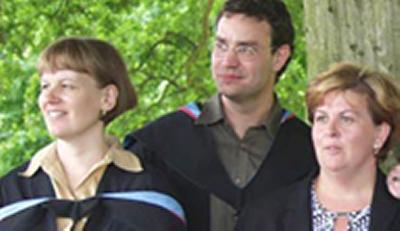
Advice to mature applicants
English has a long tradition of encouraging 'mature' applicants (i.e. over 21), and our mature students have had an above-average record of academic achievement, often progressing to successful postgraduate work at MA and PhD level.
If you're thinking of returning to education as a mature student, you're welcome to contact our admissions tutors. The following notes, however, may be useful as general guidance.
Taking the first steps
We're able to make lower offers to mature candidates than we would to standard applicants, but we still require evidence of recent formal study in the relevant area(s), and prefer an academic reference if possible (references by employers or friends are less useful to us). There are three main possibilities open to you: A level(s); an Access course; or the Open University introductory unit AA100, The Arts Past and Present.
A levels: these need only be in the subject(s) for which you are applying, but you should do your best to supplement them by wider private reading. If we make you a conditional offer (usually after interview), it will always require at least a B in the English Literature A level.
Access course: this will usually involve you dividing your time between English and other subjects, so it's even more important to supplement your classroom experience by wider private reading. If we make you a conditional offer (usually after interview), it may entail a specific level of pass in the Access course, unless the course is pass/fail. Access courses are primarily designed for applicants with relatively little academic experience; if you have a reasonable amount of academic experience already, an A level or the recommended OU introductory unit might be a more appropriate choice for you.
OU - The Arts Past and Present: here we require a pass. This unit offers a good introduction to humanities subjects, but again, since it is fairly general, you should read beyond the set texts to cover as wide a range of English literature as possible. Although it's possible to do this unit in a year, you would need to choose the October (rather than February) start date to get your results in time for entry in the following October.
The tutors on all these courses will be able to write your UCAS reference and give follow-up references on your progress where appropriate (usually necessary for Access students, who apply very early on in their course). The work you do on the course will then prepare you not just for the undergraduate course but, more immediately, for the interview which will probably form part of the application procedure; you should also expect to be asked at interview about your reading beyond the course you are taking.
Counting the costs
As a mature applicant, you may have to cope with tight financial constraints, and balance existing commitments (e.g. to work or family) with the demands of your degree course. It's important to check before you embark on a university course exactly what it will require in terms of time and money, and also to take into account its likely impact on your life in general.
Time and money: if you don't have very substantial financial resources, the current system of university funding means that you will need to work within a tight budget, and even with good financial management you may well end up in debt. It may be possible for you to bridge the gap to some extent with part-time work, but you'll be expected to put in a full working week on your academic work in term time for a full-time course, half a week if you're part-time, and recent research on full-time degrees suggests that more than 10-12 hours' paid work a week during term is likely to have an adverse effect on your degree result. Check your entitlement to student loans or grants, and to benefits, carefully, and make sure you allow for other costs, such as textbooks and photocopying.
Personal life: if you have a family, look at your decision from their point of view. If you go to university, you'll be acquiring new qualifications and skills (perhaps with unpredictable results), meeting new people (ditto), and diverting much of your time and attention to your studies; even the most loving and supportive partners and children may find this more of a strain than they expect.
Don't let these comments put you off - we have had many mature students who have kept their heads above water financially and successfully completed their degrees with the wholehearted backing of their families. But it's essential to think ahead.
Further information
More information about studying as a mature student is available on the main University website. For general information about finances, matriculation requirements, part-time study, transport and so on, see the online University prospectus. For childcare, see the University's Early Years Centre's website.